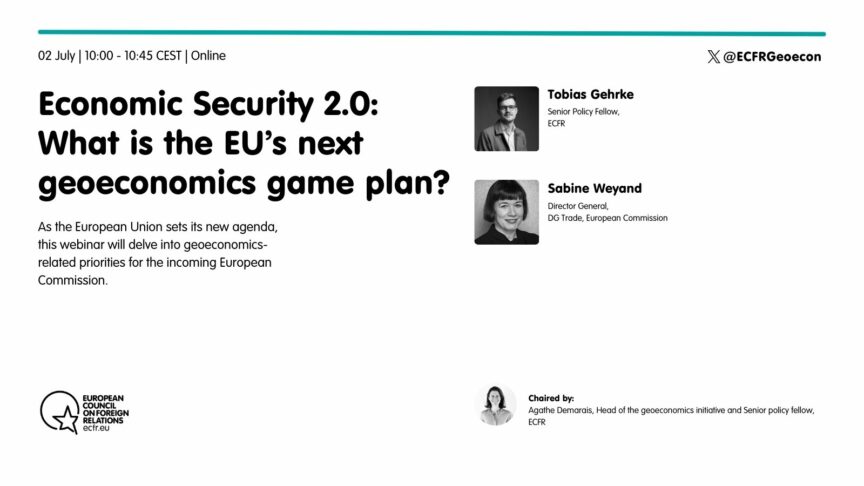
Economic Security 2.0: What is the EU’s next geoeconomics game plan?
As the European Union sets its new agenda, this webinar will delve into geoeconomics-related priorities for the incoming European Commission. Drawing on two new ECFR…

As the European Union sets its new agenda, this webinar will delve into geoeconomics-related priorities for the incoming European Commission. Drawing on two new ECFR…

The EU needs a sanctions doctrine – a framework to set out the goals, means, and risks for the use of economic measures
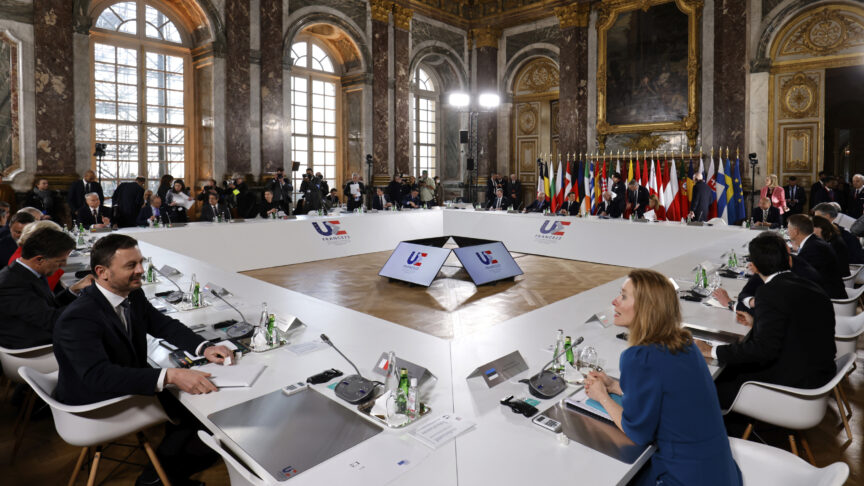
A strong Anti-Coercion Instrument could help the EU brace for a long-term economic war with Russia and adapt to the new geo-economic order
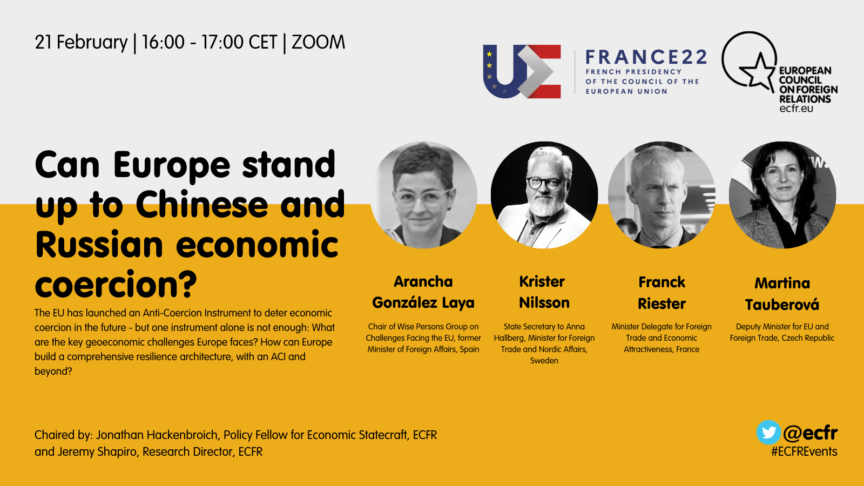
The European Council on Foreign Relations in the context of the French Presidency of the Council of the EU is delighted to invite you to a debate on the principles that should guide Europe’s quest for economic sovereignty
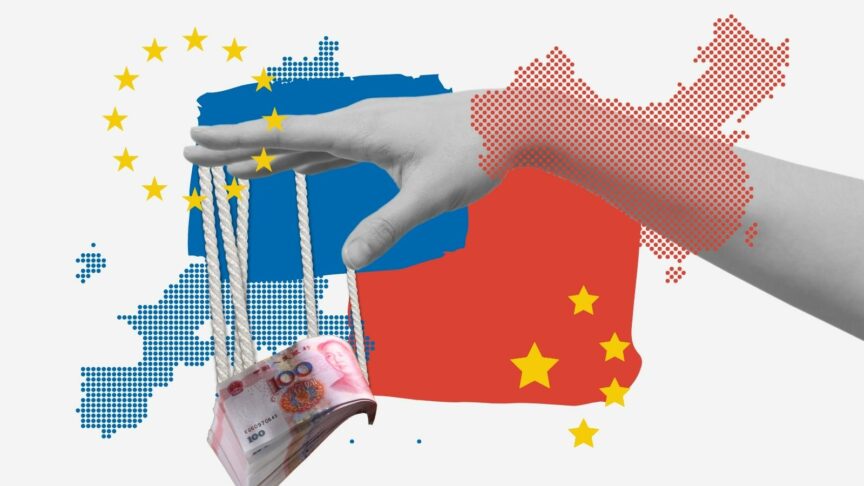
The EU needs to develop an Anti-Coercion Instrument that acts as a powerful economic deterrent, but this alone will not sufficiently protect Europe against economic coercion
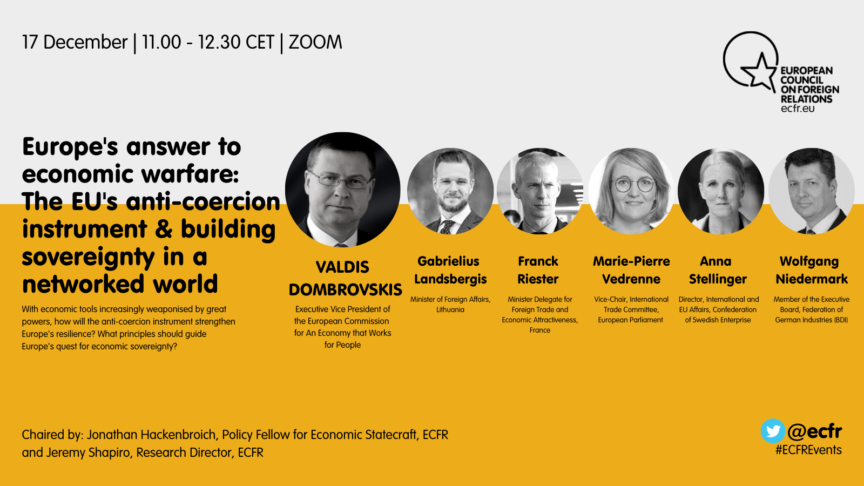
Join ECFR in this two-part event on the EU’s potentially game-changing geopolitical instrument against economic blackmail from great powers, and the principles that should guide Europe’s quest for economic sovereignty
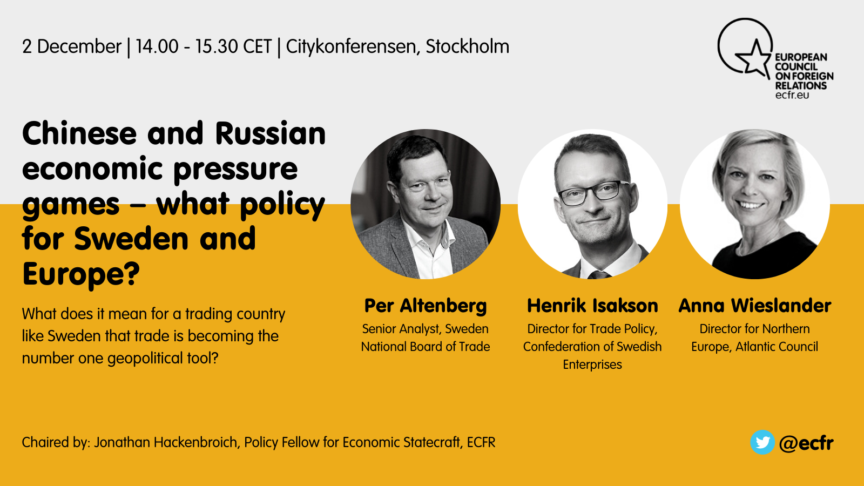
How should Sweden and Europe adapt to the rise of geo-economics, keeping their markets open but minimizing their vulnerabilities?
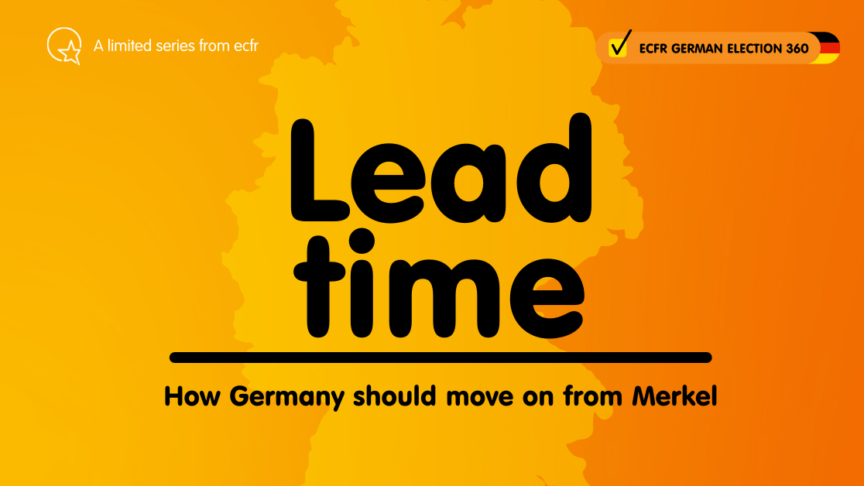
How can the next German government build up Europe’s strength against economic coercion?
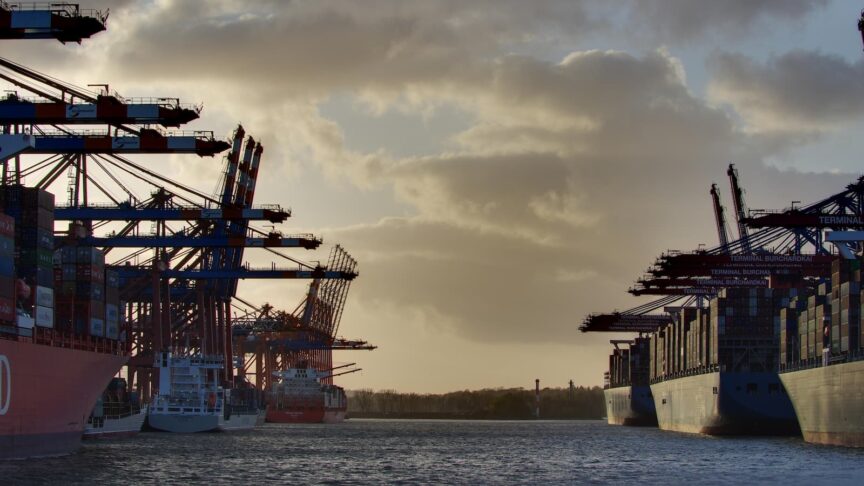
Threats to Germany’s and Europe’s economic sovereignty have won too little attention in the German election campaign. But, soon, policymakers in Berlin will have to take decisive steps to build up Europe’s strength against economic coercion

In what circumstances should an Anti-Coercion Tool be triggered? What kind of countermeasures could protect Europe, keep markets open and support a functional global trade order?

The EU needs to develop an Anti-Coercion Instrument that acts as a powerful economic deterrent, but this alone will not sufficiently protect Europe against economic coercion
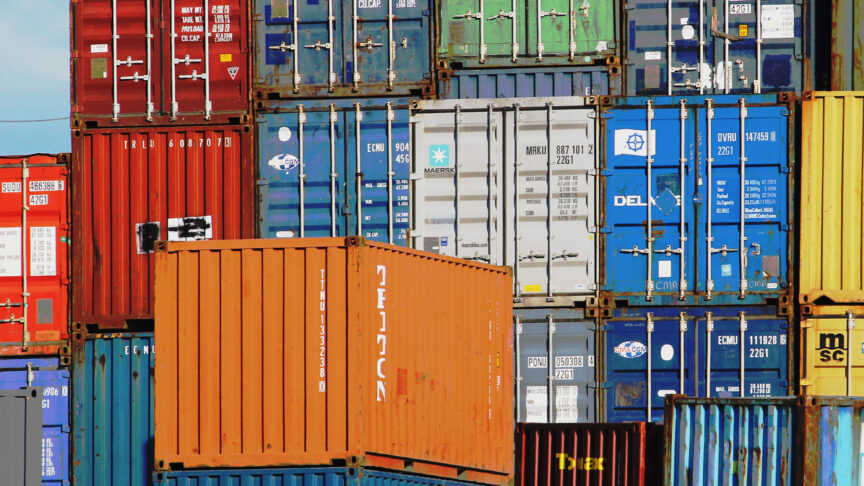
The anti-coercion instrument needs to enable countermeasures that are both effective and credible; if it does not, this could carry more risks than benefits

The EU needs a sanctions doctrine – a framework to set out the goals, means, and risks for the use of economic measures

A strong Anti-Coercion Instrument could help the EU brace for a long-term economic war with Russia and adapt to the new geo-economic order

Threats to Germany’s and Europe’s economic sovereignty have won too little attention in the German election campaign. But, soon, policymakers in Berlin will have to take decisive steps to build up Europe’s strength against economic coercion
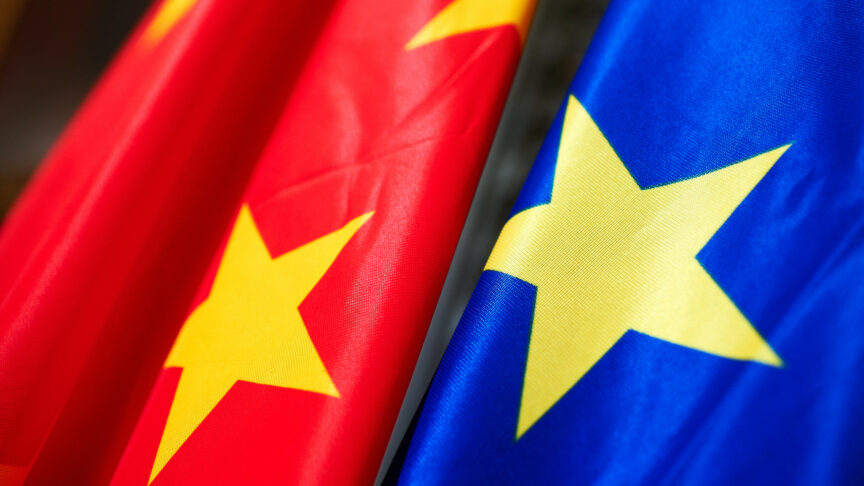
China’s recent personal and economic sanctions have sent a strong message to Europeans, but there are concrete ways for the EU to build up its resilience against economic coercion

China is ramping up the pressure on European decision-makers, academics, and companies. The EU must move quickly to build its resilience against such economic coercion
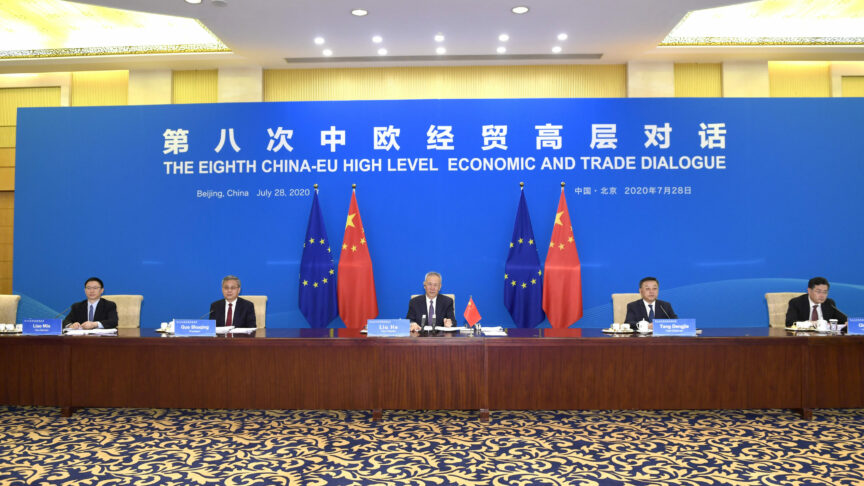
Europe needs to enhance its toolbox for protection against economic coercion, carefully balancing its strategy in five areas

How can the next German government build up Europe’s strength against economic coercion?

In what circumstances should an Anti-Coercion Tool be triggered? What kind of countermeasures could protect Europe, keep markets open and support a functional global trade order?

As the European Union sets its new agenda, this webinar will delve into geoeconomics-related priorities for the incoming European Commission. Drawing on two new ECFR…

The European Council on Foreign Relations in the context of the French Presidency of the Council of the EU is delighted to invite you to a debate on the principles that should guide Europe’s quest for economic sovereignty

Join ECFR in this two-part event on the EU’s potentially game-changing geopolitical instrument against economic blackmail from great powers, and the principles that should guide Europe’s quest for economic sovereignty

How should Sweden and Europe adapt to the rise of geo-economics, keeping their markets open but minimizing their vulnerabilities?